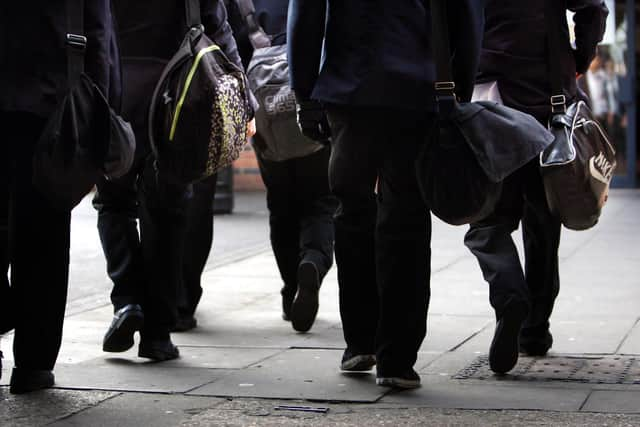The next government will have to address the break down of the unwritten social contract between families and schools - David Behrens
That’s why so many were reluctant to return to the daily grind of commuting in the rain, eating a limp Cornish pasty for lunch and getting stuck in traffic on the way home.
It wasn’t only adults who embraced the convenience of not having to leave the house; children warmed to the freedom from routine that lockdown perversely brought them. And while most were champing at the bit to be back outside with their friends, the idea of not going to school every day became for some a lifestyle choice.
Advertisement
Hide AdAdvertisement
Hide AdIt’s only now that we’re learning just how seismic a shift this was. Kids who until 2019 trooped off to class every day or else made sure they had a sick note are now being educated at home or not at all.


In many towns the numbers being homeschooled have more than doubled since lockdown began. At the same time absenteeism among those still on the school register has gone through the roof.
There are several reasons for this but freedom of choice – perhaps too much of it – is the common factor. Parents have rebelled against what they see as draconian rules on taking time off during term time. That the government could close the school for two months but not allow them a day’s leeway when booking their holidays sticks in the throat. And families are increasingly unwilling to enter a lottery to get into the school of their choice in the first place.
As a result, the unwritten social contract between families and schools is breaking down. That was how John Camp, president of the Association of School and College Leaders, put it at the organisation’s annual conference last week. The level of trust has deteriorated to such an extent, he said, that nearly one in three teachers had seen pupils taken out of class because their parents were in dispute with the school.
Advertisement
Hide AdAdvertisement
Hide AdAmong the other reasons given for keeping kids at home were that they were “tired after an event the night before”. A decade ago an excuse like that would have led to exclusion – but now it seems the balance of power has swung in the parents’ favour.
It is a phenomenon that was especially evident in Sheffield the other week when council officials impudently attacked parents for trying to get their kids into the best schools. People were ’playing the system’, they complained, by listing only one preference or entering the same choice three times.
It was a ‘myth’ that such tactics made any difference, said the chief admissions official, thereby digging himself a deeper hole than he was already in. Of course it’s a myth; other than moving to a different area there is nothing parents can do to beat the system and that’s where the erosion of trust begins.
It isn’t a new phenomenon; 20 years ago Mrs B and I upped sticks at huge expense to a different catchment area rather than risk Behrens junior being consigned to a sink school if the local one was oversubscribed. It was the best investment we ever made but it shouldn’t have been necessary. No-one should have to settle for a second-best education.
Advertisement
Hide AdAdvertisement
Hide AdThat is exactly the sentiment fuelling the boom in homeschooling. The number has risen by 11,000 in the last year alone, suggesting that the movement away from traditional classrooms during lockdown has become permanent. Hardly any of the parents involved say they made the decision for health reasons. And while homeschooling still accounts for only one per cent of children it’s clearly no longer the refuge of nonconformists alone.
Unauthorised absence is a far bigger statistic. Around one pupil in five was persistently missing during the first term of the current school year, according to the Department for Education. That’s nearly double the pre-pandemic figure.
How much of this absenteeism was conducted with the connivance of parents is not recorded, but they are the ones being held to account. Last week ministers announced punitive fines for families who take mid-term holidays – a measure that seems likely to widen the trust gap rather than heal it.
It is this chasm that the next government will have to address and it can only do so by making education attractive to families who are not naturally inclined to embrace it. For truant-age kids that means practical courses tailored to local job opportunities, not one-size-fits-all baccalaureates from the era of the cane and the mortar board.
We can’t raise a generation of children for whom education is as discretionary as going to the office.
Comment Guidelines
National World encourages reader discussion on our stories. User feedback, insights and back-and-forth exchanges add a rich layer of context to reporting. Please review our Community Guidelines before commenting.